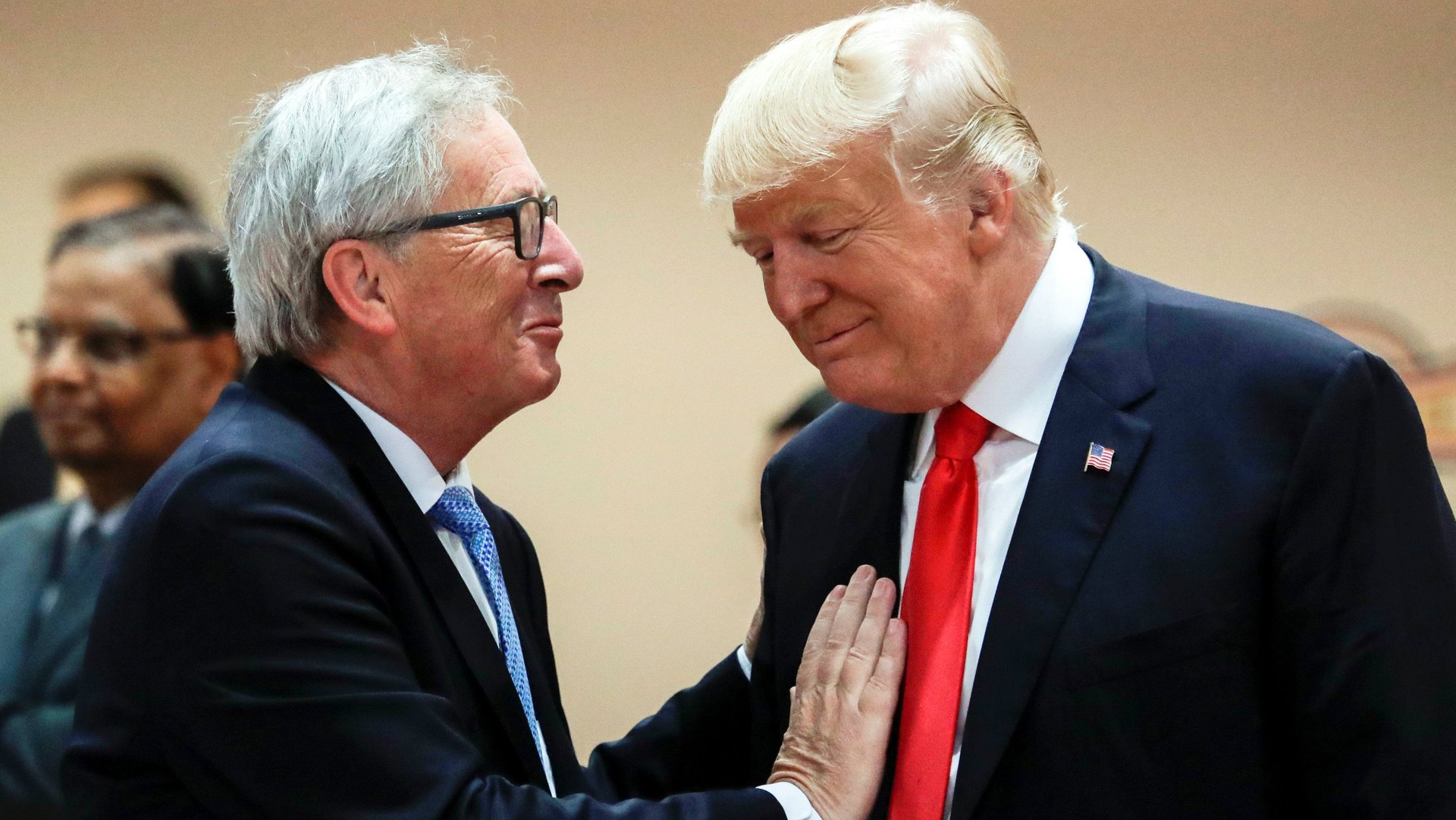Hoping to avert an all-out trade war, the EU’s top official meets Trump in Washington
When European Commission president Jean-Claude Juncker meets president Donald Trump at the White House today (July 25), he won’t be putting a trade deal on the table. Instead, he will simply be hoping that Trump will show a willingness to put an all-out global trade war on pause.


When European Commission president Jean-Claude Juncker meets president Donald Trump at the White House today (July 25), he won’t be putting a trade deal on the table. Instead, he will simply be hoping that Trump will show a willingness to put an all-out global trade war on pause.
To put it one way, his primary goal will be one of de-escalation. But what would that look like, and how would we know that Juncker had achieved it?
“Obviously, if Trump announced a reversal of his tariffs, that would be a success,” the deputy director of Brussels-based economic think tank Bruegel, Maria Demertzis, told Quartz. That seems like a pipe dream: Even as Juncker made his way to Washington yesterday, Trump took the time to remind his Twitter followers of his fondness for tariffs.
At the end of May, Trump imposed punitive steel and aluminum tariffs on the EU, Canada and Mexico (paywall) and has threatened to impose further levies on European cars. The EU responded by imposing tariffs on $3.2 billion worth of US exports, including Bourbon whiskey, peanut butter, and motorcycles.
“Juncker will be hoping to convince Trump that a trade war with the EU will hurt both sides,” Demertzis said.
Juncker will come armed with the kinds of statistics that remind Trump that the US and EU economies are roughly the same size and both mutually prosper from the trading status quo.
The bloc already warned earlier this month that it could impose up to $294 billion in countermeasures on US exports—almost a fifth of the total value of US exports in 2017. And Juncker will have help from US businesses: Motorcycle maker Harley-Davidson warned yesterday that its profit margins are likely to halve this year as a result of EU tariffs, and higher aluminum and steel prices.
Juncker might also hope to convince Trump that his oversimplified focus on the $150 billion trade deficit with the EU is not the result of European swindling, but instead the result of a better-performing US economy (paywall).
If Trump seems to be buying it, Juncker might float the possibility of negotiating a deal between the world’s major auto-exporting nations, or even an EU-US trade deal covering industrial goods. But Juncker needs to be “very careful,” Demertzis noted.
Though he consulted with German chancellor Angela Merkel and French president Emanuel Macron, among others, ahead of the meeting, Juncker does not exactly have the mandate from EU member states to make any kind of large overture.
Speaking on Friday (July 20) about the trip, Merkel was reserved: “I’m not filling myself with expectations or predictions.”